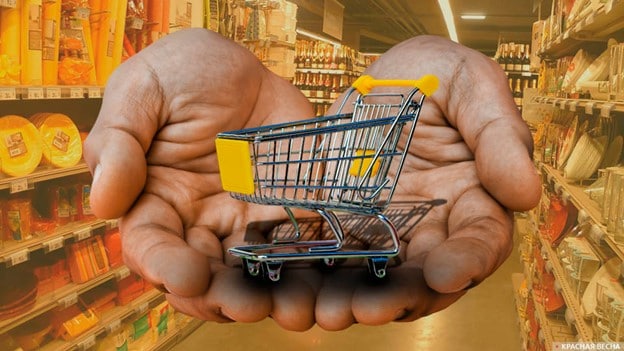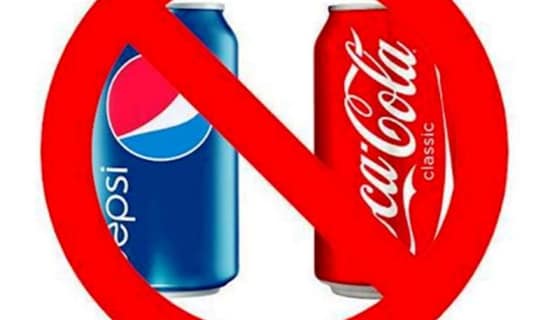Russia, like many other industrialized economies, has been experiencing inflation. Unlike, Western countries, Russia has been less generous with payments to tide over those hit by the pandemic. Nevertheless, inflation is reducing the standard of living of the majority of Russians Professor Evgeny Gontmakher Deputy Director of the Institute of World Economy and International Relations (IMEMO) of the Russian Academy of Sciences claims that part of the problem is the state statistical agency Rosstat that is creating a credibility gap by underestimating the inflation rate. It utilizes a consumer basket that includes such necessities as trips to Greece and China. Only the well-off in the major Russian cities can afford such commodities; most of Russia makes do with the bare necessities. If inflation was calculated based on the price of cooking oil, eggs, poultry etc., a much higher inflation rate would emerge. To fight inflation and its consequences, Gontmakher recommends introducing a real-world consumer price basket.
Gontmakher's article follows below:[1]

Russians can afford only a much-reduced shopping basket (Source: Rossaprimavera.ru)
"The fact that prices are rising abnormally fast seems to be acknowledged by everyone, right down to the country's leaders. Inflation at the end of this year is likely to reach 6.5-7% or even higher. However, when one pronounces this figure (6.5-7%) the vast majority of people who regularly go shopping say in unison, "I don't believe it." Actually, public opinion believes the official inflation rates to be vastly underestimated and markedly different from real life. This perception greatly reduces the already low confidence level in government, that, many are convinced, manipulates the statistics.
"So, who's assessment is more accurate?
"I want to start by stating that Rosstat didn't get this 7% out of thin air. Inflation is calculated by changes to the cost of goods in the "consumer basket," which this year includes 556 items and services. They have everything there! Let's take meat and meat products, for instance. I counted as many as 20 items for which prices are regularly monitored.
"The consumer basket (on which the consumer price index depends) includes not only food, clothing and footwear but also, for example, the cost of organized tourist trips to Greece and China. Starting from this year the market basket includes the cost of a one-day stay in various hotels (from hostels to five-star hotels), tourist trips to Turkey and the UAE, subscriptions to online and video services as well as car rental services (car sharing).
"Now let us ask a rather simple question, "who in Russia can afford to buy goods and services from this basket?" The answer is obvious. It's mainly families residing in cities with a population of millions, whose incomes are not lower than the mean income for their place of residence. For instance, in Moscow (before the COVID-19 pandemics) the average income per capita was 75,000 rubles a month; for St. Petersburg it was 50,000 rubles a month, for Novosibirsk it is - 40,000 rubles a month and so on. However, income distribution [among the population strata] in these cities is highly uneven. Thus, the upper middle class is fortunate enough to make a good living. It's they who can buy – if it suits them –goods and services from the aforementioned consumer basket.
"And what about the vast majority of residents living in medium and small villages and towns?
"Their market basket is rather bare-bones. It contains the most basic food products such as bread and cereal products, potatoes, vegetables of the "borsch set", sugar, sunflower oil, milk, the cheapest meat and sausages). Add to that utility bills, hygiene products, medicine. With the remaining pittance (assuming of course that anything remains) a person buys the cheapest clothes and shoes. That's it.
"Multiple surveys demonstrate that the majority of Russian households don't have even token savings, which puts them in an intolerable situation, when suddenly they have to bear emergency costs such as dental services or rounding up children from school. It is no coincidence that the President has ordered the allocation of an allowance to families with schoolchildren by the beginning of this school year.
"The situation with price rises in this consumer basket somewhat differs from the affluent minority.
"Let's scrutinize the following official data: by the beginning of 2021, in Russia the price of sunflower oil has increased by an average of 27% (in annual measurements); prices for chicken eggs have risen by 16%; granulated sugar – by 59%; wheat flour – by 14%; rice – by 15%; pasta – by 12%; potatoes – by 36%; apples – by 18%; black tea – by 10%. Even bread and cereal products rose in price by 9%.
"Meanwhile, according to the very same official indicators, the increase in the "consumer price index for goods and services" in Russia was only 4.9% (comparing December 2020 prices to those of the previous year).
"True, a number of goods and services have risen less than 4.9%, but the food products listed above form the major basis of most Russian families' diet.
"In order to provide final clarity as to inflation's effect on the country's majority, let's mention an indicator calculated by Rosstat, but known only to a narrow circle of specialists. It's called "the cost of a notional (minimum) food basket." This indicator is calculated by the month and includes 1.25 kg of beef (with bones), 330 gm of pork (with bones), 1.17 kg of chicken meat, 150 gm of butter, 600 gm of sunflower oil, 9.2 liters of milk, 15 eggs, 1.7 kg of wheat flour, 15.8 kg of bread and 12.5 kg of potatoes.
"In other words, this diet of a conditional person has an emphasis on bread, potatoes and milk. Such a set of products also includes 200 gm of cheese and 1.5 kilos of apples. On average these products would cost a buyer 4456 rubles in Russia in December 2020; its price has appreciated by 9.6% during the year, which is twice as high as the aforementioned average consumer price increase.
"Thus, it's no wonder that people do not believe the official statistics on inflation and get puzzled when state leaders use them to describe real life events. It would be the equivalent of when describing the Russian climate they would talk only about our subtropics, which, as you know, account only for a narrow strip of the the Black Sea coast.
"There is a table in the monthly Rosstat bulletin, which provides the main economic and social parameters of the country's development. I believe it would be fairer and more politically correct to include not only the "consumer price index," but also the change in the cost of the consumer basket for the median and the low-income part of the population. In this case the three indicators combined would show a situation that much more accurately approaches reality than the current one-sided indicator.
"It is very important to introduce into official circulation additional inflation parameters used for indexation of pensions and other social payments. The indicators used for that now clearly underestimate the real price growth. It's no coincidence that, according to Rosstat, the real size of pensions declined slightly in the first half of this year. Is there a connection between the inflationary effect on pensions and the president's proposal to distribute 10,000 rubles to each pensioner?
"However, this was only a one-time payment, which was successfully performed in September. What's next?
"The government plans to index [pensions] by 5.9% at the beginning of 2022, which is obviously less than even the officially expected inflation in Russia. however, if one to calculate the forecasted inflation for the two aforementioned parameters, the depreciation of pensions could be most tangible. This will affect the lives of tens of millions of elderly people, whose life increasingly resembles a struggle for survival.
"Any progress (and Russia certainly needs it now) begins with a sound analysis of things at hand. This also applies fully to understanding how rising prices actually reduce the already low standard of living enjoyed by majority of the country's citizens. Naturally, I mean a realistic analysis of the situation in healthcare, education, and other social sectors. Only on the basis of accurate information can ambitious, but attainable national goals be achieved."

Evgeny Gontmakher (Source: Echo.msk.ru)
[1] Mk.ru, September 30, 2021.








